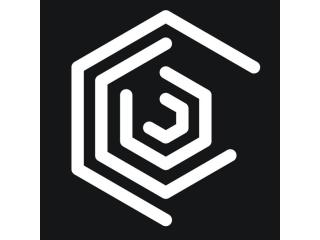Choose "Make this ad premium" at checkout.
NEURAL NETWORK PATENTS: ADVANCING ARTIFICAL INTELLIGENCE Perth
- Location: Western Australia, Perth, Perth, Australia
Introduction
Artificial intelligence (AI) has seen explosive growth, with neural network innovations playing a pivotal role in advancing this field. Neural networks, inspired by the human brain's structure, are foundational in creating sophisticated AI applications. In Australia, patent activity around neural networks has surged, covering diverse technologies such as backpropagation, activation functions, recurrent neural networks (RNNs), self-organizing maps, dropout, generative adversarial networks (GANs), long short-term memory networks (LSTMs), convolutional neural networks (CNNs), perceptrons, and multilayer perceptrons. This article reviews key neural network patents and their impact on AI with insights from AI Patent Attorneys.
Backpropagation and Activation Functions
Backpropagation is essential in training neural networks, enabling the adjustment of weights to minimize errors. Patents in this area emphasize optimizing the backpropagation process to improve efficiency and accuracy. Activation functions, which introduce non-linearity into networks, have also been a major focus. Innovations in functions like rectified linear units (ReLUs) have made deep learning models more robust and efficient, supporting broader applications.
RNN and LSTM Networks
Recurrent neural networks (RNNs) are designed for sequential data processing, ideal for language modeling and time series prediction. Patents in this area often enhance RNN architecture and training to improve capturing long-term dependencies. Long short-term memory (LSTM) networks, a type of RNN, have specialized memory mechanisms to retain information over extended sequences, addressing issues like the vanishing gradient problem. Patents in the LSTM space focus on improving these memory features for applications such as speech recognition and natural language processing.
Self-Organizing Maps and Dropout
Self-organizing maps (SOMs) are a type of unsupervised neural network that is beneficial for clustering and data visualization. Patents here cover advancements in the self-organization process, with applications in data mining and pattern recognition. Dropout, a regularization method that prevents overfitting in neural networks, has been a subject of numerous patents. These focus on refining dropout strategies and incorporating them across network architectures to improve performance and generalization.
Generative Adversarial Networks (GANs)
Generative adversarial networks (GANs) represent a significant AI breakthrough, consisting of two networks—a generator and a discriminator—that compete to produce realistic synthetic ***** GAN-related patents focus on refining adversarial training, enhancing data quality, and expanding applications in image synthesis, video generation, and data augmentation. GANs have contributed to advancements in industries such as entertainment, design, and virtual reality by generating highly realistic images.
CNNs and Perceptrons
Convolutional neural networks (CNNs) process grid-like data structures like images and have transformed computer vision tasks. Patents in the CNN space encompass innovations in convolutional architectures and training efficiency, greatly impacting fields such as image recognition, object detection, and medical imaging. Perceptrons, the most basic neural network form, lay the foundation for complex structures like multilayer perceptrons (MLPs). Patents here focus on enhancing perceptron training and applying them across various industries.
Conclusion
The rise in neural network patents highlights rapid AI innovation. From foundational techniques such as backpropagation and activation functions to advanced architectures like GANs and CNNs, these patents drive AI progress. Patent activity reflects industry advancements, supported by companies like Lexgeneris, which focus on enhancing AI capabilities. These patents protect and encourage innovation, ensuring that neural networks continue evolving and shaping AI’s future.
To learn more about becoming a patent attorney, visit our comprehensive guide on "How to Become a Patent Attorney."






Useful information
- Avoid scams by acting locally or paying with PayPal
- Never pay with Western Union, Moneygram or other anonymous payment services
- Don't buy or sell outside of your country. Don't accept cashier cheques from outside your country
- This site is never involved in any transaction, and does not handle payments, shipping, guarantee transactions, provide escrow services, or offer "buyer protection" or "seller certification"
Related listings
-
 TRANSFORMER MODELS: DRIVING AI PATENT STRATEGY IN NLPLegal Services - Perth (Perth) - November 5, 2024
TRANSFORMER MODELS: DRIVING AI PATENT STRATEGY IN NLPLegal Services - Perth (Perth) - November 5, 2024IntroductionTransformer models, including BERT (Bidirectional Encoder Representations from Transformers) and GPT (Generative Pre-trained Transformer), have transformed natural language processing (NLP), enabling sophisticated language comprehension a...
-
 NEURAL NETWORK PATENTS: ADVANCING ARTIFICAL INTELLIGENCELegal Services - Perth (Perth) - November 4, 2024
NEURAL NETWORK PATENTS: ADVANCING ARTIFICAL INTELLIGENCELegal Services - Perth (Perth) - November 4, 2024Introduction Artificial intelligence (AI) has seen remarkable growth, primarily driven by advances in neural network technology. Modeled after the brain’s structure, neural networks are central to developing sophisticated AI applications,...
-
 ADVANCING AI PATENTS WITH CONTENT EXTRACTION TECHNIQUESLegal Services - Perth (Perth) - October 30, 2024
ADVANCING AI PATENTS WITH CONTENT EXTRACTION TECHNIQUESLegal Services - Perth (Perth) - October 30, 2024Introduction to Content Extraction in AI PatentsIn the rapidly evolving field of Artificial Intelligence (AI), content extraction has become a critical technique, especially in the context of AI patents. Content extraction involves retrieving key inf...


